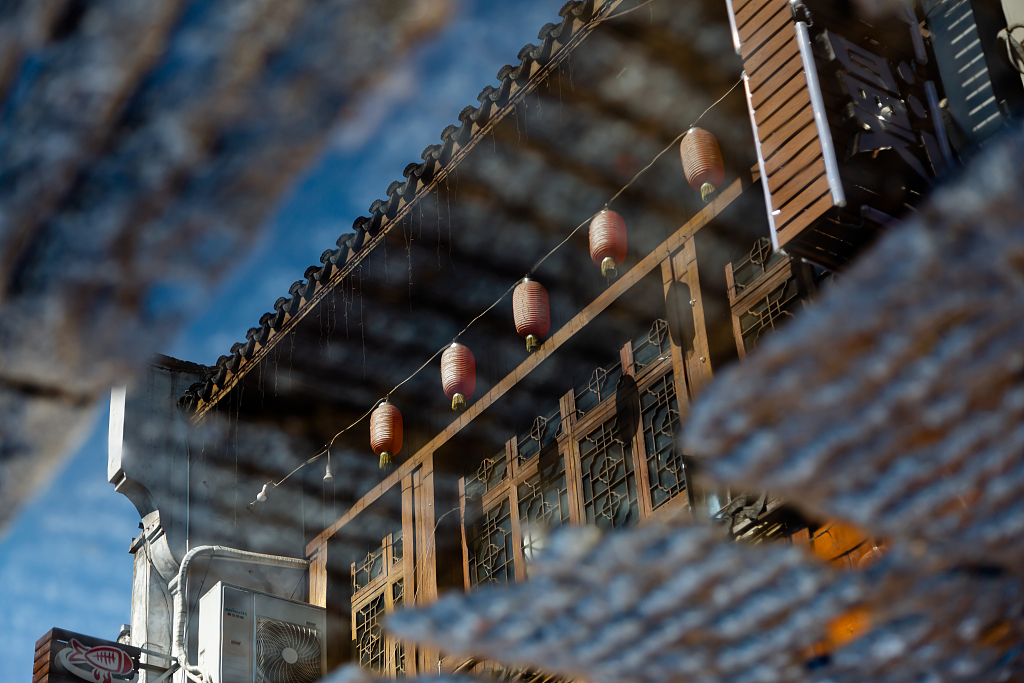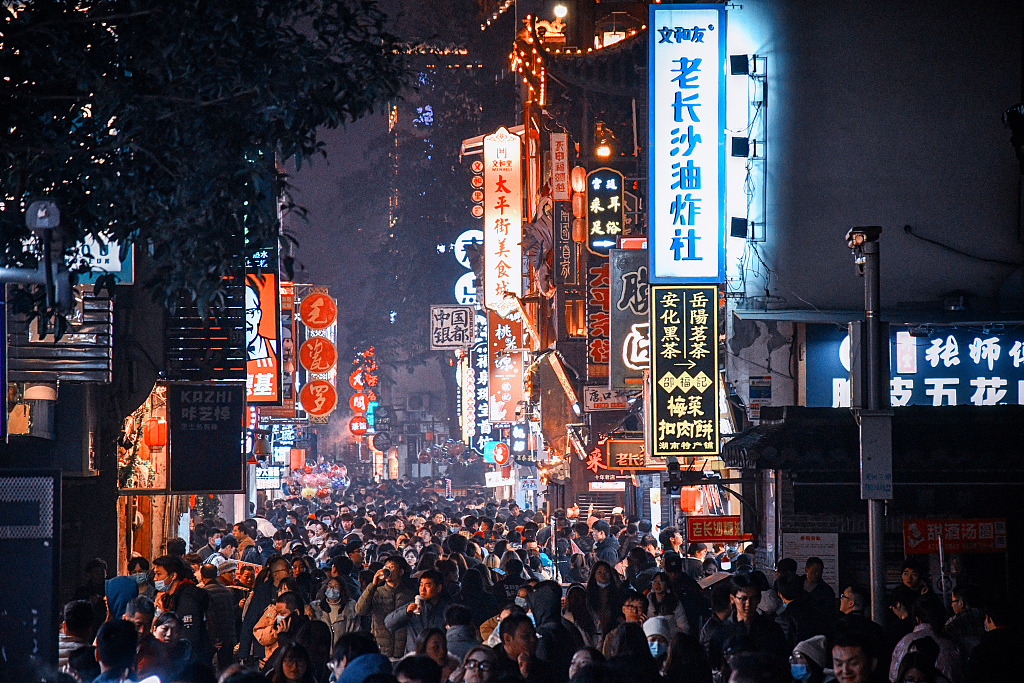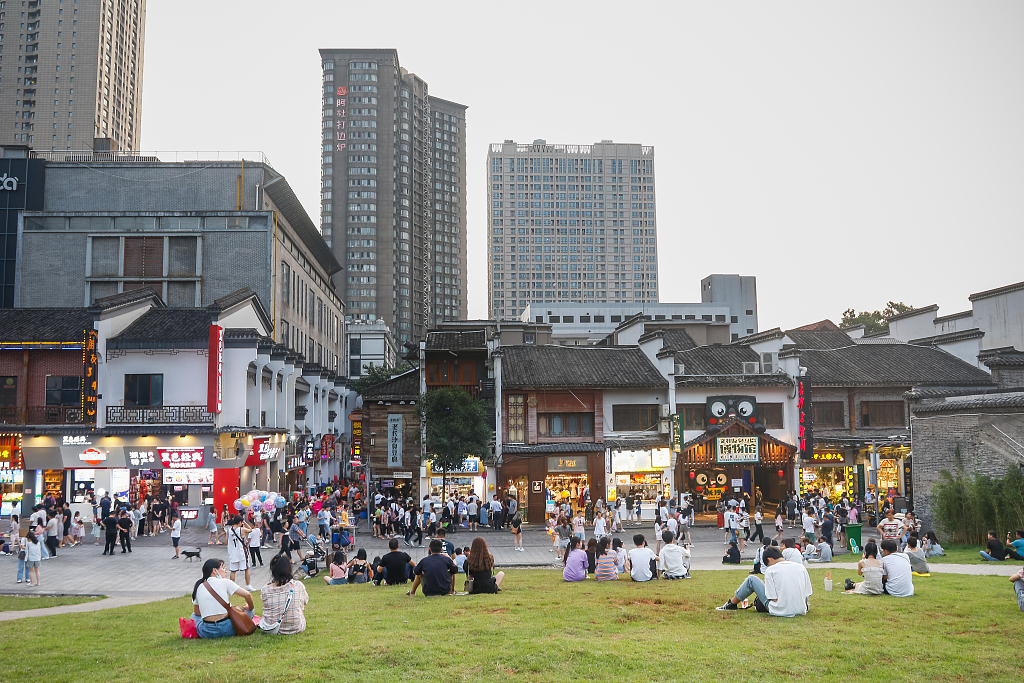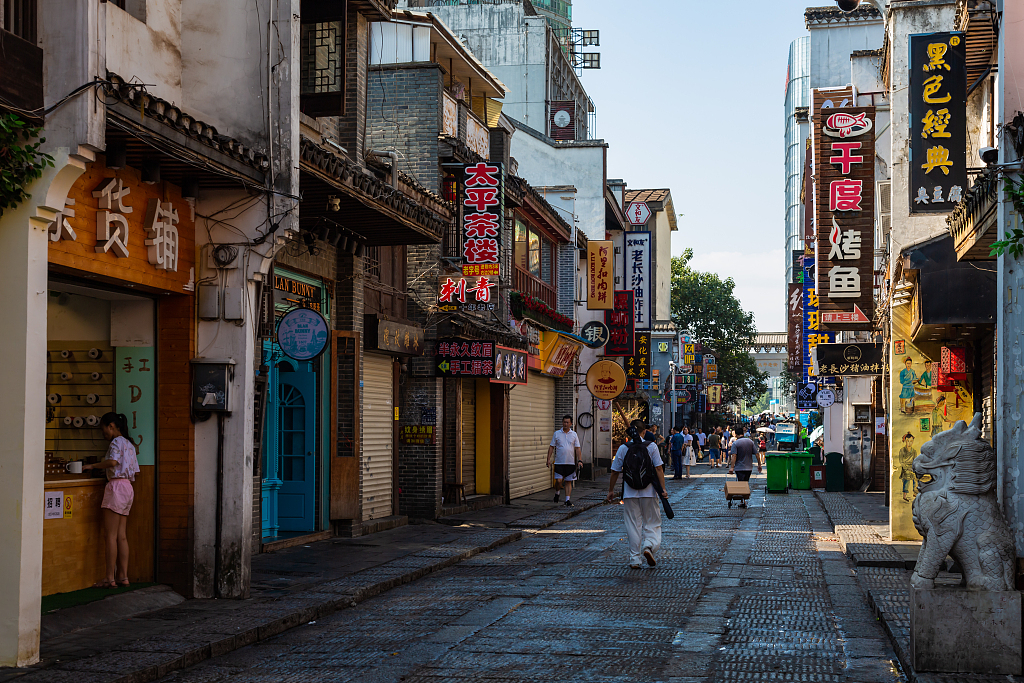Taiping ancient street shines with modern twist in Changsha
 Located in the heart of Changsha in central China, Taiping ancient street is considered a must-see spot for travelers and locals. It is one of the most significant historical blocks in this popular tourist city and a lively destination filled with traditional snacks, crafts, architecture and modern art.
Located in the heart of Changsha in central China, Taiping ancient street is considered a must-see spot for travelers and locals. It is one of the most significant historical blocks in this popular tourist city and a lively destination filled with traditional snacks, crafts, architecture and modern art.
Featuring a herringbone structure, the old street has witnessed the city's vicissitudes for 2,000 years. With dozens of small alleyways branching off the 380-meter-long and 7-meter-wide street, it boasts more than 30 historical buildings and six immovable cultural relics.
Of them, the Former Residence of Jia Yi, situated at the southern end of the block, is one of the oldest and most renowned pieces of architecture, dating back to the Western Han Dynasty ( 202 BC – 9 AD).
Jia (200 BC – 168 BC) was a famed essayist, poet and statesman in the Han Dynasty who is best known for his classical essay, "Disquisition Finding Fault with Qin," which showcases Jia's insights into the collapse of the former Qin Dynasty.
Remarkably, this ancient residence has been repaired and rebuilt over 100 times.
Other historical sites include an ancient well called Changhuai, the Ming Dynasty (1368 - 1644) mansion of Prince Mingji, and the former meeting place of the political group "Hsing Chung Hui" during the uprising of 1911.

The majority of the buildings lining the street maintain the appearances from 200 years ago, including gray tiles, pitched roofs and wooden doors and windows. The traditional snacks, time-honored brands and examples of Hunan's intangible cultural heritage highlight the block's abundant historical connotations.
Cultural activities and celebrations are regularly staged there and Hunan's intangible cultural heritage is often put on display to preserve and promote it for future generations.
For example, a temple fair offering Hunan Opera, Flower-drum Opera (or Huagu Opera) performances and dragon dances is held every year during the Spring Festival. Exhibitions of Hunan embroidery, paper-cuttings and ceramics are also held at a cultural heritage protection center on the street.

In recent years, the old street has been infused with modern twists as it embarks on an innovative path of development marked by the integration of traditional and modern culture.
Located at the northern end of Taiping Street, a "cultural and creative" market has emerged as a tourist hot-spot for young people while making a big splash on social media.
Transformed from a wine factory in the 1980s, the market houses an art gallery, cafe, a museum about "relationship break-ups" and digital exhibitions on traditional culture.

Free WiFi and full 5G coverage has further propped up the attractions and made this old street even more appealing to younger generations. QR codes are served at each tourist spot as well as the entrances and exits of the block, granting visitors access to a range of convenient services such as navigation and positioning, panoramic guide maps, and audio and video introductions.
The street now ranks among the 55 "National Tourism and Leisure Blocks" named by the Ministry of Culture and Tourism in 2022.






